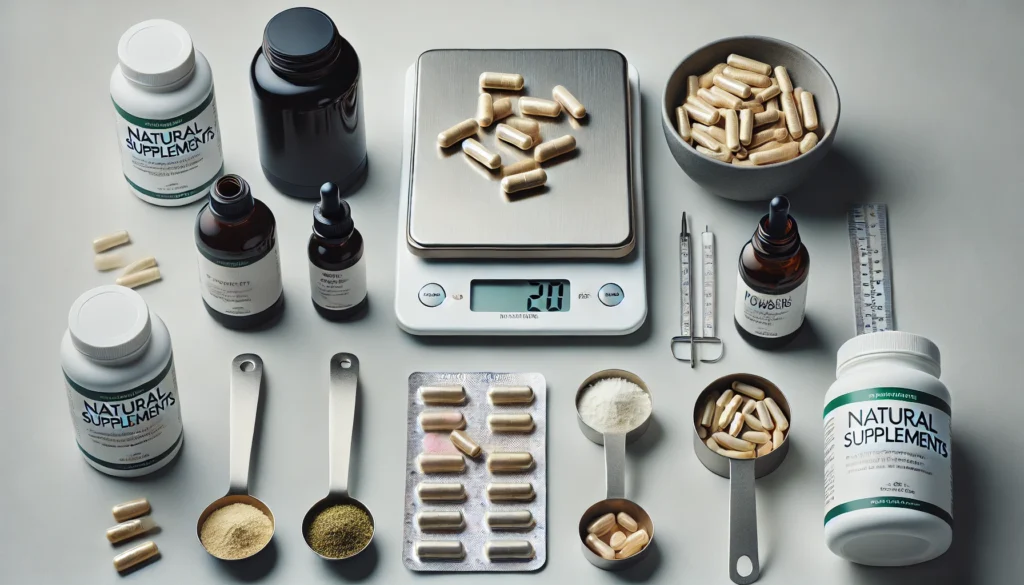Adderall has become a widely prescribed medication for attention deficit hyperactivity disorder (ADHD) and narcolepsy, and its use has expanded into various settings—from academic to professional—where sustained focus is often demanded. However, with the rising prevalence of Adderall prescriptions, there is a growing need for clarity around potential drug interactions and natural ways to enhance its effectiveness. Many users ask, what medications can you not take with Adderall? This question is not only medically relevant but essential for personal safety and treatment success. From understanding serious risks like serotonin syndrome to exploring holistic supplements to take with Adderall, this article delves into how to navigate Adderall safely and effectively.
You may also like: Exploring Natural SSRI Alternatives: Herbal Remedies for Anxiety and Mood Support

Understanding Adderall’s Pharmacology and Potential Interactions
To fully appreciate the complexity of Adderall interactions, one must first understand what drugs are in Adderall. Adderall is a combination of four different amphetamine salts, which work by increasing the levels of dopamine and norepinephrine in the brain. These neurotransmitters are crucial for maintaining attention, motivation, and cognitive alertness. However, this neurochemical stimulation means that Adderall can interact with numerous medications, sometimes dangerously. This includes both prescription and over-the-counter substances, highlighting the importance of evaluating every component in a person’s regimen.
Among the most commonly questioned pairings is Adderall and antidepressants. While these combinations are often used therapeutically—especially in patients with both ADHD and depression—they must be approached cautiously. For example, combining Effexor and Adderall can increase the risk of overstimulation or hypertensive episodes due to overlapping norepinephrine effects. Similarly, buspirone and Adderall may cause unpredictable shifts in mood or anxiety levels, especially if dosed improperly. These are not isolated concerns; rather, they underscore why understanding what medications can you not take with Adderall is central to safe and effective treatment.

Commonly Used Medications That Can Conflict with Adderall
When patients ask what can I not take with ADHD meds, the list is longer than many anticipate. Combining Adderall and Benadryl, for instance, may result in heightened sedation or paradoxical stimulation, especially in younger users. The combination of DayQuil and Adderall is particularly concerning because DayQuil contains dextromethorphan and pseudoephedrine, both of which can amplify Adderall’s cardiovascular effects, leading to increased heart rate and blood pressure. Similarly, pairing Adderall and Tylenol might seem harmless, but certain Tylenol cold and flu formulations contain phenylephrine, which can create synergistic overstimulation.
Other combinations warrant close examination. Can you take ibuprofen with Adderall? Generally, yes—there is no direct pharmacological conflict between Adderall and ibuprofen. However, this may not be the case with other pain relievers. Many patients ask what pain reliever can I take with Adderall, and the safest options tend to be non-sedating, non-opioid medications like acetaminophen or ibuprofen, provided they are taken in isolation. Tramadol and Adderall, on the other hand, present a significant risk, particularly for serotonin syndrome. Likewise, combining Adderall and Advil or using Adderall and antibiotics like linezolid or certain fluoroquinolones can pose risks, especially in individuals with existing cardiac conditions or seizure thresholds.

Over-the-Counter Drugs and Allergy Medications to Watch
Seasonal allergies often prompt users to consider antihistamines alongside Adderall. Claritin and Adderall, when taken together, are generally safe, but they can lead to dry mouth or slight irritability in some individuals. However, combining Adderall and Zyrtec may lead to more pronounced drowsiness or nervousness due to the sedating properties of Zyrtec. NyQuil and Adderall is another problematic combination, especially since NyQuil contains doxylamine and dextromethorphan, both of which can have adverse neurological and cardiovascular effects when paired with stimulants. Similarly, taking Adderall and decongestants together—such as in the case of “what decongestant can I take with Adderall?”—requires extreme caution, as most decongestants are stimulants themselves.
For those seeking answers to questions like can you take Tylenol with Adderall or can you take Advil with Adderall, the answer typically depends on the formulation. Pure acetaminophen or ibuprofen is unlikely to cause harm, but combined products with added stimulants or antihistamines often complicate the picture. Therefore, carefully reading ingredient labels and consulting with a healthcare provider remains essential when introducing any new medication into an Adderall-based treatment plan.
Serotonin Syndrome, Stimulants, and High-Risk Combinations
A particularly severe and often overlooked risk when combining medications with Adderall is serotonin syndrome. This condition arises from excessive serotonergic activity and can lead to symptoms ranging from agitation and confusion to muscle rigidity and seizures. Many drugs—not just antidepressants—can contribute to this risk. The concern around serotonin syndrome and Adderall becomes even more pressing when drugs like Effexor or buspirone are involved. Can you take Adderall and antidepressants safely? Sometimes, but it must be done under close supervision, especially when multiple serotonergic agents are involved.
Understanding whether Adderall increases serotonin is key to assessing this risk. Although Adderall primarily acts on dopamine and norepinephrine, it may indirectly influence serotonin levels, particularly at high doses or when paired with other serotonergic substances. Pairings like LSD and Adderall or acid and Adderall are particularly dangerous due to both serotonergic excess and psychological unpredictability. These combinations dramatically increase the risk of serotonin syndrome and neurotoxicity, making them highly unsafe and strongly discouraged.
Cardiovascular Considerations and High Blood Pressure Risks
Because Adderall affects the cardiovascular system, questions often arise about its compatibility with other medications, particularly those for hypertension. Can you take Adderall with high blood pressure medication? In many cases, yes—but with caution. Stimulants can counteract the effects of antihypertensives, leading to elevated blood pressure and heart rate. This is particularly true for beta blockers or diuretics, where the body’s response may become unpredictable. Monitoring blood pressure and pulse regularly is vital when starting or adjusting medications that influence cardiovascular function.
Moreover, concerns like is Adderall a blood thinner occasionally surface, though Adderall itself does not possess anticoagulant properties. However, its vasoconstrictive effects can mimic some of the cardiovascular changes associated with blood thinning agents. When taken alongside other vasoconstrictors or cardiac medications, the risk of complications may increase, especially in older adults or those with existing cardiovascular disease. This adds another layer to evaluating what medications can you not take with Adderall, particularly in complex treatment plans involving multiple organ systems.
Herbal Remedies and Supplements to Take with Adderall
While the list of contraindicated medications can be daunting, there is also growing interest in natural ways to support focus and cognitive health while minimizing side effects. Many users seek supplements to take with Adderall that enhance attention, mood, and energy without overstimulation. Adaptogenic herbs such as Rhodiola rosea and ashwagandha have shown promise in clinical and observational studies for reducing stress and supporting mental clarity. These herbs work by modulating the hypothalamic-pituitary-adrenal (HPA) axis and may counterbalance some of the overstimulation occasionally caused by Adderall.
In addition to adaptogens, L-theanine—an amino acid found in green tea—can promote calm focus, especially when used alongside stimulants. Omega-3 fatty acids, particularly EPA and DHA, support cognitive health and mood regulation, making them ideal adjuncts to stimulant therapy. Magnesium glycinate and vitamin B-complex supplements may also assist in minimizing anxiety and irritability, two common side effects of Adderall. Unlike pharmaceuticals with high interaction risks, these supplements can often be incorporated more safely, though professional guidance is still advised.
As always, it is essential to view supplements to take with Adderall as part of a comprehensive, individualized wellness plan. While these natural remedies offer support, they do not replace the pharmacologic effects of prescription medications and must be integrated mindfully, especially when considering long-term health goals and potential nutrient-drug interactions.
Frequently Asked Questions (FAQ) on Adderall Interactions and Considerations
Can I take over-the-counter antihistamines like Benadryl with Adderall?
Combining Adderall and Benadryl is generally considered safe, as there are no significant interactions between the two medications. However, Benadryl (diphenhydramine) can cause drowsiness, which may counteract the stimulating effects of Adderall. It’s essential to monitor how you feel when taking both and consult your healthcare provider if you experience any adverse effects. Because Benadryl is a central nervous system depressant and Adderall a stimulant, the mixed effects can feel confusing to your body. Always inform your doctor about all medications and supplements you’re taking to ensure safety.
Are there any concerns with taking Adderall and antidepressants together?
Yes, combining Adderall and antidepressants requires careful consideration. Certain antidepressants, especially monoamine oxidase inhibitors (MAOIs), can lead to dangerous interactions, including hypertensive crises. Selective serotonin reuptake inhibitors (SSRIs) and serotonin-norepinephrine reuptake inhibitors (SNRIs) may increase the risk of serotonin syndrome when taken with Adderall. Symptoms of serotonin syndrome include agitation, hallucinations, rapid heart rate, and increased body temperature. Always consult your healthcare provider before combining these medications.
What supplements should I avoid or consider when taking Adderall?
While some supplements may enhance the effects of Adderall, others could pose risks. For instance, supplements containing high doses of caffeine or other stimulants can amplify Adderall’s side effects, such as increased heart rate and anxiety. Conversely, L-Theanine, found in tea leaves, is known for its calming properties and may help mitigate some of Adderall’s overstimulating effects. Magnesium and omega-3 fatty acids are often taken alongside Adderall to support cognitive function and mood balance. Always discuss any supplements with your healthcare provider to ensure they won’t interfere with your medication.
Is it safe to take over-the-counter cold medications like DayQuil with Adderall?
Caution is advised when combining DayQuil and Adderall. DayQuil contains stimulants like phenylephrine, which may elevate blood pressure and heart rate when used with Adderall. This could increase the risk of cardiovascular side effects such as palpitations or anxiety. Additionally, some formulations of DayQuil include ingredients that can interfere with Adderall metabolism. It’s best to consult your healthcare provider before combining these medications, especially if you have a history of heart conditions or high blood pressure.
Can I take pain relievers like Tylenol or ibuprofen with Adderall?
Generally, taking Adderall and Tylenol or ibuprofen is safe, as there are no known dangerous interactions. However, always consider the reason you’re taking the pain reliever. If you’re taking it for a condition that affects liver or kidney function, talk to your doctor, since Adderall also has metabolic implications. If you’re unsure whether to take Adderall and Advil or Adderall and Tylenol together, a pharmacist can provide guidance. Overall, Adderall and ibuprofen use is not typically problematic.
Does Adderall increase serotonin levels?
While Adderall is primarily known for increasing dopamine and norepinephrine, it can indirectly affect serotonin levels. The risk here is not the serotonin boost itself but the potential for serotonin syndrome when taken alongside SSRIs or other serotonergic drugs. So, does Adderall increase serotonin? Yes, modestly and indirectly—but it’s more significant when combined with other medications. This is why understanding the broader interaction between serotonin and Adderall is critical for safety. Always disclose all medications to your provider, including supplements.
What medications can you not take with Adderall?
There are numerous medications that can cause adverse effects when combined with Adderall. Examples include MAOIs, tricyclic antidepressants, some antipsychotics, and certain blood pressure medications. Drug interactions with Adderall can lead to severe outcomes like increased heart rate, high blood pressure, or serotonin syndrome. If you’re ever wondering “what can I not take with ADHD meds,” it’s best to have a pharmacist or doctor cross-reference your full medication list. In general, caution should be taken with any medication that influences the central nervous system.
Is Adderall a blood thinner?
No, Adderall is not a blood thinner. However, because of its effects on blood pressure and circulation, it’s often questioned in that context. While Adderall doesn’t thin the blood, combining it with actual blood thinners or NSAIDs could increase risks of hypertension or bleeding disorders in sensitive individuals. This becomes particularly relevant when someone asks, “Is Adderall a blood thinner?” or considers whether it interacts with drugs that affect clotting. Always verify medication compatibility, especially before procedures or surgeries.
Can I take Adderall if I have high blood pressure?
Taking Adderall with high blood pressure can be risky without proper medical supervision. Adderall tends to elevate heart rate and blood pressure, which can exacerbate hypertension. If you’re asking whether you can take Adderall with high blood pressure medication, the answer depends on the type of antihypertensive you’re on. Some blood pressure meds may blunt Adderall’s effects or increase cardiovascular strain. Regular monitoring and clear communication with your provider are essential if you fall into this category.
Are there any interactions between Adderall and common allergy or cold medications?
Yes, several over-the-counter medications, such as Claritin and Adderall or Zyrtec and Adderall, may pose interaction risks, especially if the allergy medication contains decongestants. Clarifying what decongestant can I take with Adderall is crucial, as pseudoephedrine and phenylephrine can heighten Adderall’s cardiovascular effects. Similarly, NyQuil and Adderall, or even Adderall and antibiotics, can sometimes result in metabolic competition or liver enzyme interactions. If you’re unsure about any combination, ask your provider or pharmacist before use. Always stay informed about drug interactions with Adderall to protect your long-term health.
Conclusion: Navigating Adderall Safely with Medication Awareness and Natural Support
As Adderall continues to play a pivotal role in managing ADHD and narcolepsy, understanding the spectrum of potential interactions is critical. The central question—what medications can you not take with Adderall—demands a nuanced, patient-specific answer that accounts for pharmacology, personal health history, and the presence of other treatments. From common over-the-counter combinations like Adderall and Benadryl to more complex concerns involving serotonin syndrome, vigilance and education are key to minimizing risks.
Equally important is the recognition that safe use of Adderall doesn’t stop at avoiding harmful pairings. Incorporating thoughtfully chosen supplements to take with Adderall—such as Rhodiola, magnesium, or omega-3s—can improve cognitive resilience and emotional balance. These holistic approaches align well with integrative medicine principles and can support individuals looking to sustain long-term focus, productivity, and mental health.
Ultimately, managing Adderall interactions is not just about restriction; it’s about empowerment. With the right information, expert guidance, and integrative strategies, individuals can safely optimize their treatment while honoring the complexities of body and mind.
natural adhd supplements, adaptogens for attention, stimulant drug precautions, herbal focus remedies, integrative ADHD management, Rhodiola rosea cognitive support, magnesium and attention span, vitamin B for brain health, amino acids for focus, OTC medication safety, combining herbs and stimulants, cardiovascular effects of stimulants, stress relief supplements, ADHD without medication, safe natural nootropics, brain health supplementation, managing stimulant side effects, serotonin support naturally, holistic psychiatry strategies, medication safety education
Further Reading:
Are there natural remedies for ADHD?
The information contained in this article is provided for general informational purposes only and is not intended to serve as medical, legal, or professional advice. While NewsHealthWatch strives to present accurate, up-to-date, and reliable content, no warranty or guarantee, expressed or implied, is made regarding the completeness, accuracy, or adequacy of the information provided. Readers are strongly advised to seek the guidance of a qualified healthcare provider or other relevant professionals before acting on any information contained in this article. NewsHealthWatch, its authors, editors, and contributors expressly disclaim any liability for any damages, losses, or consequences arising directly or indirectly from the use, interpretation, or reliance on any information presented herein. The views and opinions expressed in this article are those of the author(s) and do not necessarily reflect the official policies or positions of NewsHealthWatch.

